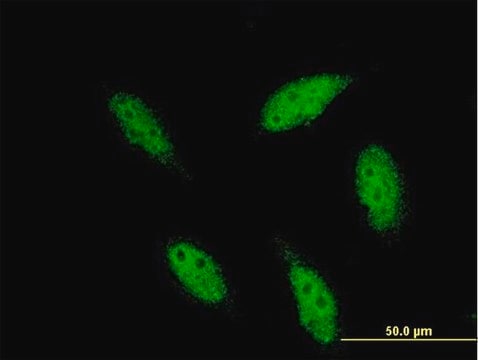MAB329
Anti-Synaptophysin Antibody, clone SP15
ascites fluid, clone SP15, Chemicon®
Sinónimos:
Major Synaptic Vesicle Protein p38
About This Item
Productos recomendados
biological source
mouse
Quality Level
antibody form
ascites fluid
antibody product type
primary antibodies
clone
SP15, monoclonal
species reactivity
pig, rat, hamster, human
manufacturer/tradename
Chemicon®
technique(s)
ELISA: suitable
immunohistochemistry: suitable (paraffin)
western blot: suitable
isotype
IgM
NCBI accession no.
UniProt accession no.
shipped in
dry ice
target post-translational modification
unmodified
Gene Information
human ... SYP(6855)
Specificity
Immunogen
Application
Formalin fixed (fixed <4 weeks), paraffin embedded
Frozen
4% Paraformaldehyde
Western blotting at 1:2,500-1:10,000.
ELISA at 1:500
Optimal working dilutions must be determined by the end user.
Neuroscience
Synapse & Synaptic Biology
Linkage
Physical form
Storage and Stability
Legal Information
Disclaimer
¿No encuentra el producto adecuado?
Pruebe nuestro Herramienta de selección de productos.
Optional
Storage Class
10 - Combustible liquids
wgk_germany
WGK 1
flash_point_f
Not applicable
flash_point_c
Not applicable
Certificados de análisis (COA)
Busque Certificados de análisis (COA) introduciendo el número de lote del producto. Los números de lote se encuentran en la etiqueta del producto después de las palabras «Lot» o «Batch»
¿Ya tiene este producto?
Encuentre la documentación para los productos que ha comprado recientemente en la Biblioteca de documentos.
Los clientes también vieron
Nuestro equipo de científicos tiene experiencia en todas las áreas de investigación: Ciencias de la vida, Ciencia de los materiales, Síntesis química, Cromatografía, Analítica y muchas otras.
Póngase en contacto con el Servicio técnico












